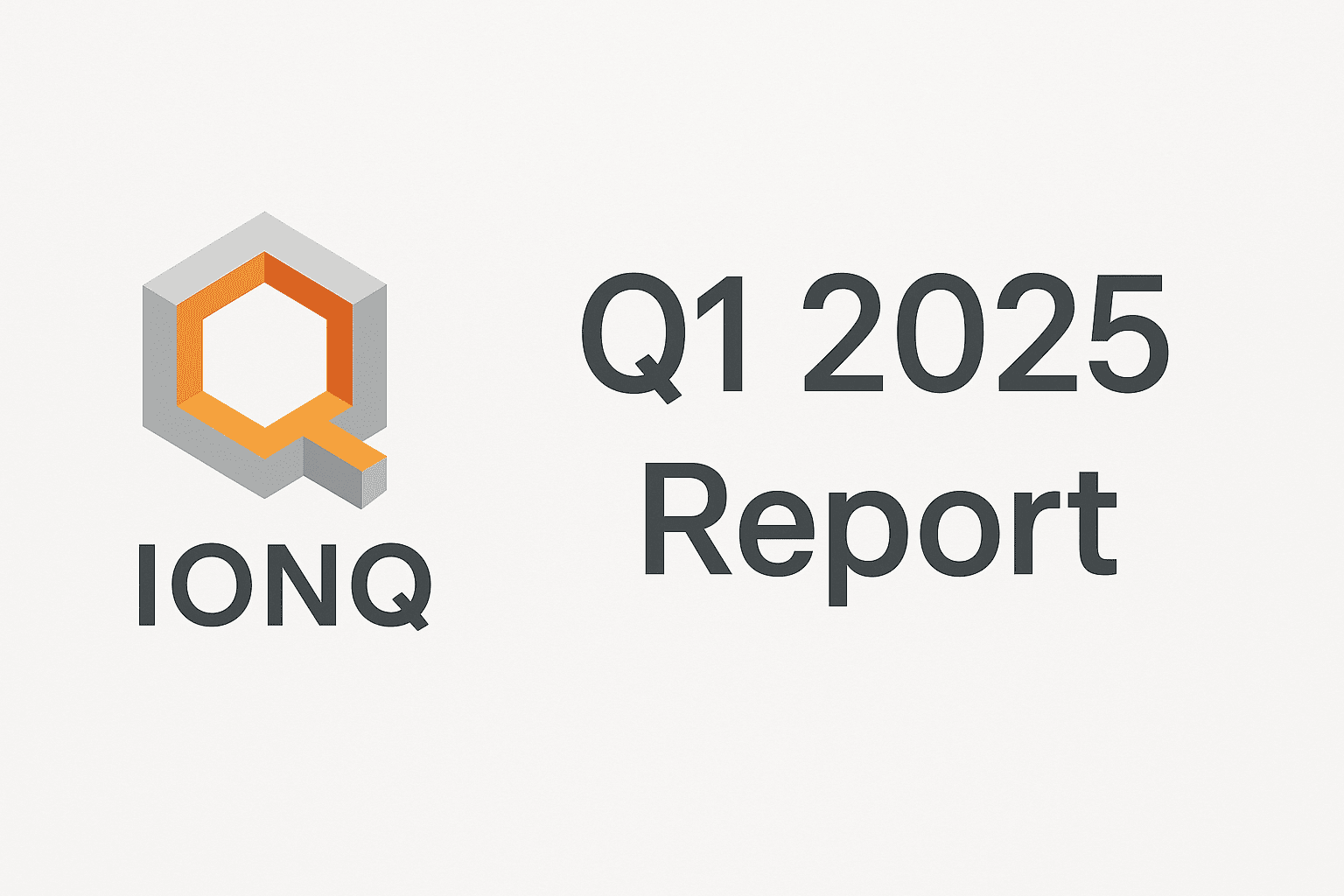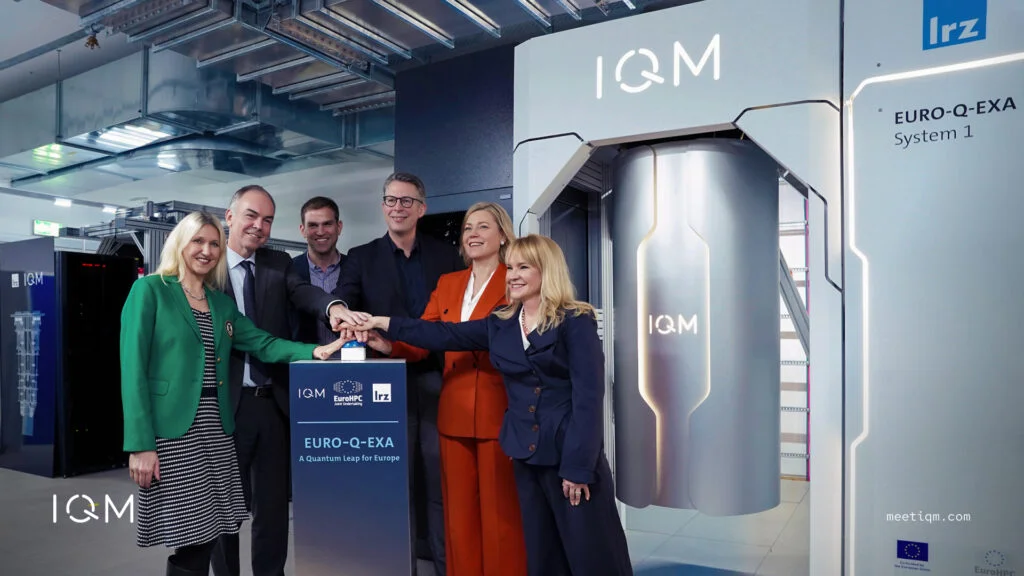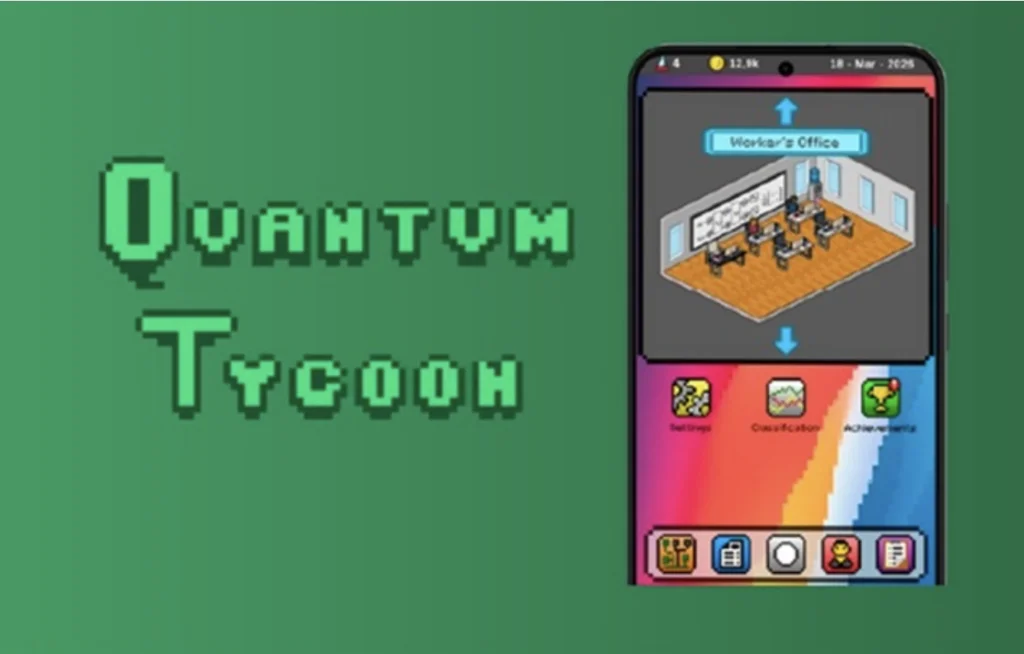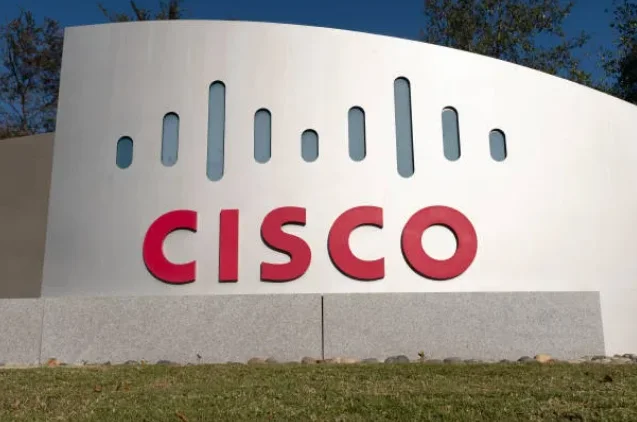Insider Brief
- IonQ reported $7.6 million in Q1 revenue and nearly $700 million in cash, using its strong financial position to pursue acquisitions, global expansion and new deployments across quantum computing and networking.
- The company announced several acquisition, including Lightsynq, while discussing deals with EPB and the U.S. Air Force, progress in DARPA’s benchmarking initiative and partnerships in Japan and space-based quantum networking.
- IonQ continues to develop its trapped-ion platform, demonstrating faster gate speeds, improved error correction, and hybrid quantum-classical performance gains, while forecasting up to $95 million in 2025 revenue despite ongoing losses.
IonQ posted first-quarter earnings that show it is using its strong cash position to push ahead with both quantum computing and networking, announcing new partnerships, government selections and acquisitions that deepen its international presence and technical roadmap, according to a company statement on the 2025 first quarter results.
The College Park, Md.-based company reported $7.6 million in revenue for the quarter ending March 31, above the midpoint of its previous forecast. The company said in the statement that it ended the quarter with $697.1 million in cash and equivalents, a figure bolstered by a $372.6 million at-the-market (ATM) equity facility, giving IonQ a sizable war chest to pursue growth.
“I am pleased with the strong start to the year at IonQ, including revenue above the midpoint of guidance for the first quarter and almost $700 million in cash equivalents as of March 31. We delivered important commercialization and expansion milestones for both our quantum computing and quantum networking businesses,” said Niccolo de Masi, CEO of IonQ. “We’re delivering real-world value for our customers today, including a recent demonstration of a 12% speed improvement over classical computing in a simulation of a heart pump using quantum processed data and a production product by our partner Ansys.”

IonQ Acquisitions
IonQ also confirmed that it is in the process of acquiring Lightsynq Technologies, a Boston-based quantum startup founded by former Harvard researchers. Lightsynq has built quantum memory and quantum repeater technology, which are seen as necessary for linking quantum processors and scaling up both quantum networks and modular quantum computers. IonQ said this acquisition is expected to help accelerate its path to building machines with tens of thousands — and eventually millions — of qubits, according to the statement.
IonQ’s quantum networking strategy also advanced with the completed acquisition of ID Quantique, a Geneva-based company with technology in quantum key distribution and quantum detection, and a signed agreement to acquire Capella, a Colorado-based company with government-grade secure communications capabilities. These moves expand IonQ’s physical footprint to South Korea, Switzerland and the United States.
The company also covered the sale of a Forte Enterprise quantum system to Tennessee-based energy provider EPB for $22 million. The deal includes the establishment of the first commercial quantum computing and networking hub and will be focused initially on energy grid optimization. IonQ said this deployment, alongside a European Forte system accessible through Amazon Braket and other platforms, is part of a broader effort to create distributed fault-tolerant quantum computing capacity.
DARPA Selection
In government programs, IonQ was selected for the first phase of DARPA’s Quantum Benchmarking Initiative (QBI), a multi-year effort to assess whether quantum computing can meet real-world performance thresholds faster than previously expected. IonQ also highlighted progress on its new headquarters at the University of Maryland’s College Park campus.
Beyond hardware and infrastructure, IonQ reported continued R&D milestones. The company participated in NVIDIA’s first Quantum Day at its GTC conference, where it demonstrated a 12% performance gain in a medical device simulation when using quantum-processed data in tandem with classical computing, in partnership with Ansys. The simulation modeled a blood pump used in heart surgeries, and the speedup suggested early promise for hybrid quantum-classical approaches in medical engineering.
The company also reported progress in artificial intelligence, announcing research on quantum enhancements for large language models and generative AI. According to IonQ, hybrid architectures that combine quantum and classical techniques could offer efficiency gains in machine learning.
In defense research, IonQ commissioned a new system to the U.S. Air Force Research Laboratory (AFRL) in Rome, New York. The system is optimized for R&D and includes a miniaturized ion trap vacuum package designed to run at room temperature and maintain an ultra-high vacuum — levels the company compared to conditions on the Moon’s surface.
Continued Focus on Trapped-Ion Modality
Technologically, IonQ continues to focus on trapped-ion quantum computing, announcingnew results on two-qubit gates using different ion species. The company claims can increase gate speeds by orders of magnitude. Faster gates are seen as critical for scalable, networked quantum computing. IonQ also published new error correction codes specifically tuned for its long-chain trapped-ion systems, reporting better performance than existing state-of-the-art codes.
Intellectual property remains a cornerstone of IonQ’s strategy. The company said it now controls more than 950 patents and pending applications, with significant additions from both ID Quantique and the expected Lightsynq acquisition. IonQ uses these patents to underpin its hardware, software, and networking stack, which spans from quantum chips to cloud-delivered compute.
IonQ is making strides in its global expansion, announcing that it signed a distributor agreement with Toyota Tsusho Corporation, marking its formal entry into the Japanese market. The company also signed a memorandum of understanding with Japan’s G-QuAT, a quantum AI initiative run by the National Institute of Advanced Industrial Science and Technology. Separately, IonQ announced collaboration with Intellian Technologies, a satellite communications firm, to explore secure quantum networking for space-based systems.
Net Loss Reported
Despite the positive moves in several directions, IonQ reported a net loss of $32.3 million and an adjusted EBITDA loss of $35.8 million for the quarter. The company noted that its adjusted EBITDA figure excludes a non-cash gain of $38.5 million related to changes in the fair value of warrant liabilities.
For the full year 2025, IonQ projected revenue in the range of $75 million to $95 million, with second-quarter revenue expected to come in between $16 million and $18 million. The company said both organic and inorganic sources of revenue are included in this forecast, reflecting its expectation of contributions from acquired firms.
IonQ said it is entering a period where near-term quantum systems can begin to deliver niche advantages. It cited its recent benchmark with Ansys and its deployment of multiple Forte systems as evidence that performance gains, while still narrow, are now showing up in commercial use cases.
Leadership Transition
In the quarterly earnings call, former CEO Peter Chapman told analysts that the transition to new leadership has been seamless, with new CEO de Masi aligned with the company’s vision.
“Under Niccolo’s leadership, we have today decisively accelerated our quantum computing roadmap as well as our capabilities to create the quantum Internet,” said Chapman. “IonQ’s architecture and ecosystem allow unique synergies with today’s addition of what I believe is the world’s leading quantum memory solution. I am proud of the pace at which Niccolo has commenced his tenure as CEO and his ability to bring out the best of our leadership, the Board and indeed IonQ as a rapidly growing public company.”
de Masi said that IonQ’s early mover advantage has set the company up for long-term leadership.
“Our early mover advantage will compound as our ecosystem breadth and depth grows relentlessly. I look forward to updating you later in the year as we close and integrate today’s acquisitions,” he said. “Whether on the ground or in space, IonQ solutions are poised to be there and lead. We believe our now near-boundless photonic interconnect scalability provides IonQ customers with the winning quantum computing and internet ecosystem, not just this decade, but we expect for the entire 21st century.”














